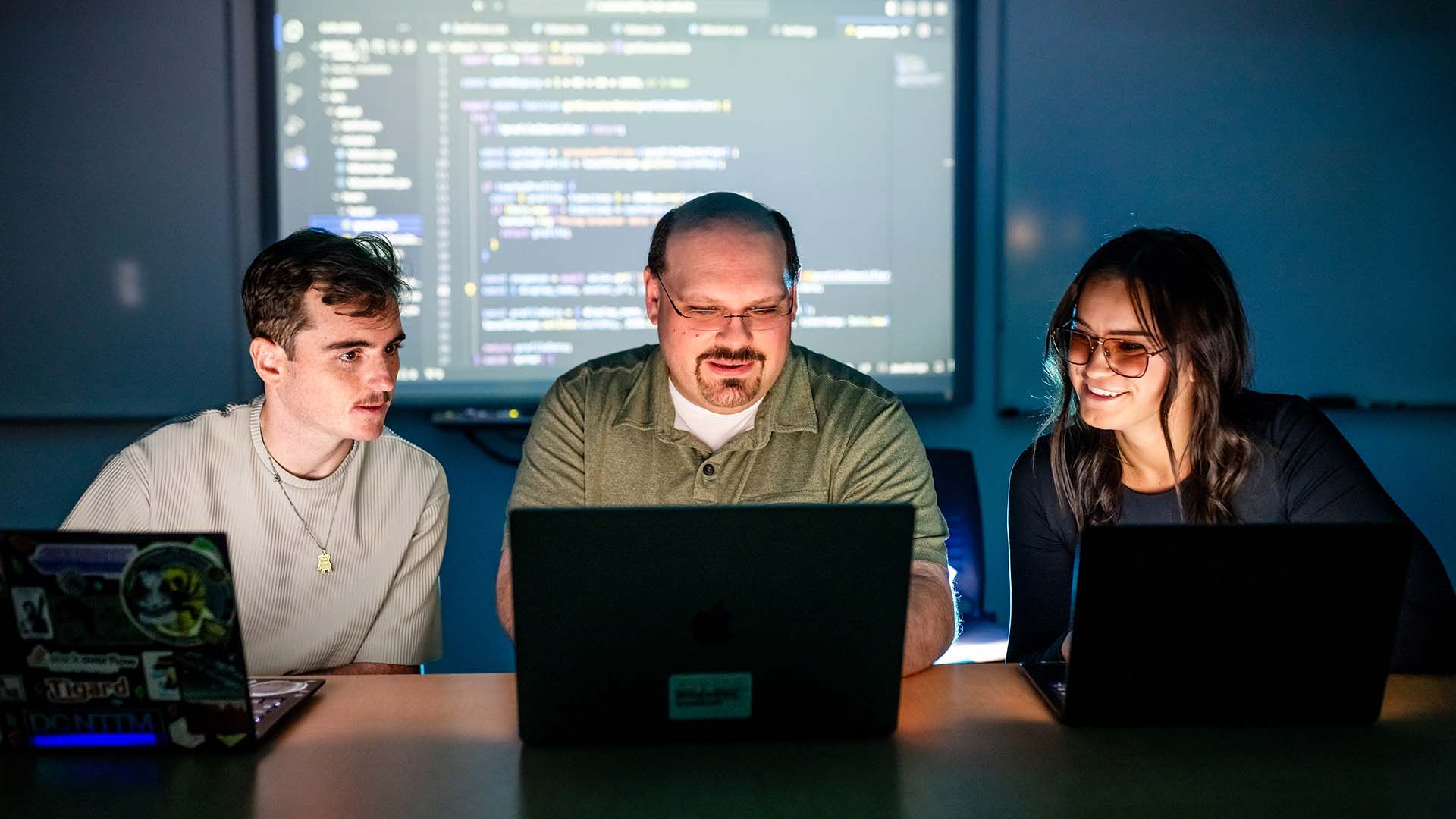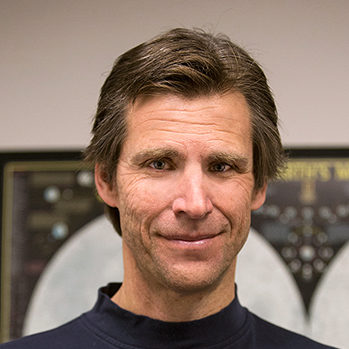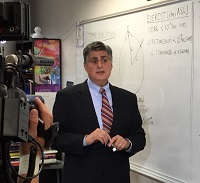Students look to the stars
MSU Denver’s thriving astronomy program reflects a growing public interest in space.

For a while there, it seemed the only way to avoid the photos from the James Webb Space Telescope was to actually be in space.
The stunning, incredible images from the Webb Space Telescope (described by one science magazine as “reshaping astronomy”) served up previously unimaginable photographs of distant galaxies, stars and exoplanets.
Metropolitan State University of Denver’s thriving community of space-mad Physics students and their professors were blown away by the results.
“The sharpness, clarity and size of the Webb images is completely unprecedented,” said Grant Denn, Ph.D., professor of Physics at MSU Denver. “You can see that when you compare them with the earlier Hubble Telescope pictures.”
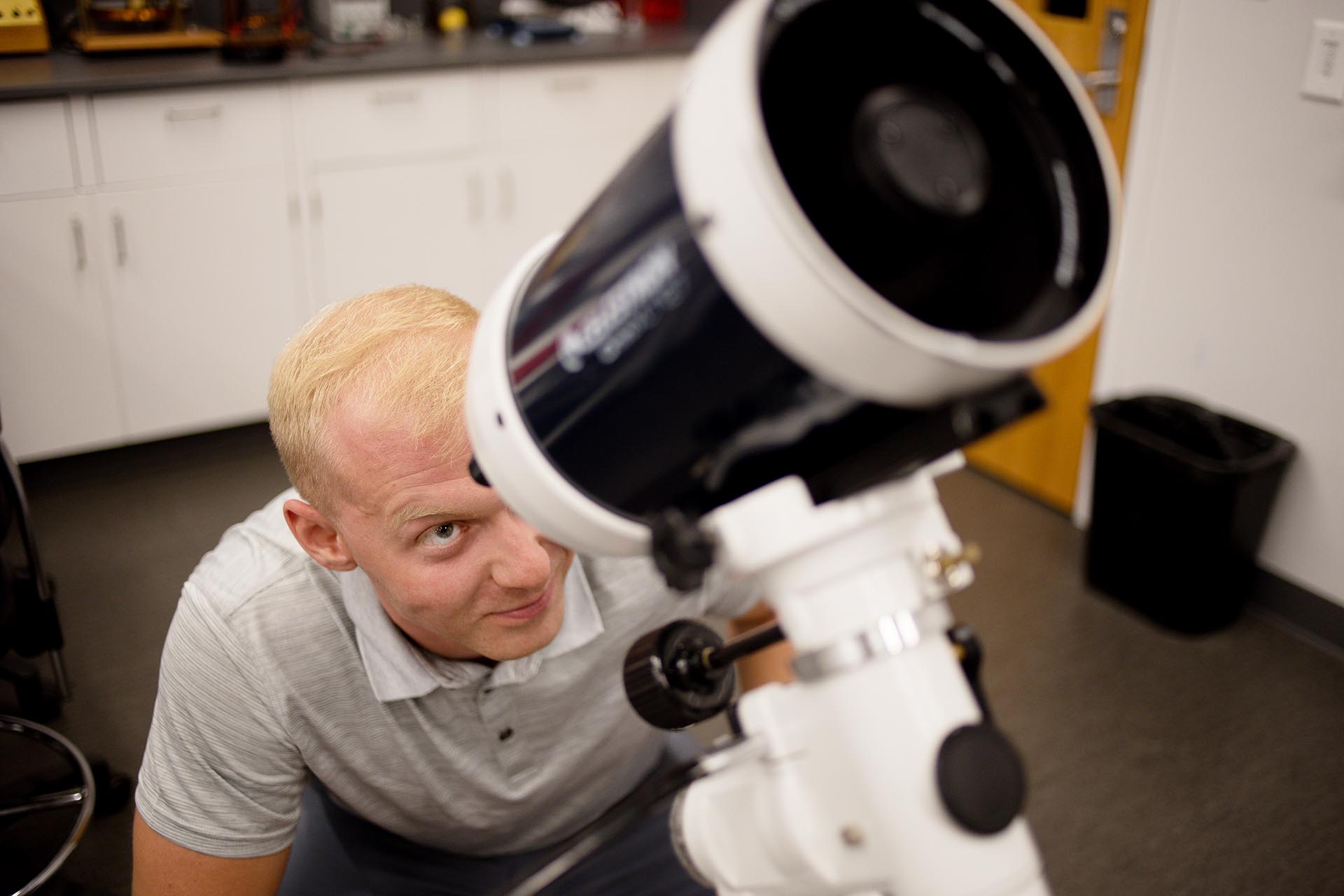
As someone who comprehends the science behind the telescope, Denn puts the images in context.
“If you raise your arm all the way up to the sky and look through a pinhead, that tiny speck you’ll see is roughly the area covered by the Webb Telescope,” he said. “But even within such a confined area, it has captured an amazing amount of detail with the largest high-resolution photographs ever seen.”
Space race
Today, millions of people routinely scroll their devices to see incredible space imagery, real-life rockets and endless streams of sci-fi content. Besides the Webb Telescope, a trio of space-baron billionaires are holding their own private rocket race on live TV, with SpaceX, Blue Origin and Virgin Galactic each grappling for ascendency.
And last year saw official confirmation of the existence of UFOs — rebranded by the government as UAPs (Unidentified Aerial Phenomena). The whole notion of space travel and other planets just seems more accessible now.
RELATED: The future of spaceflight
This growing interest in the cosmos has been reflected in MSU Denver’s astronomy courses (including Astrophysics, Astronomical Techniques and Planetary Physics), where enrollment numbers have grown significantly in the past year.
Denn is proud of how its students are tackling “some of the hardest courses on the whole campus.” And he is hugely optimistic about their career prospects.
“While astronomy is a great subject in its own right,” he said, “our students gain lots of skills — such as engineering, computer analysis and working with laboratory equipment — that are easily transferable to numerous other fields and careers.”
By her own admission, “physics is hardly an easy topic.” But student Natalie Oikawa has zero regrets about signing up for her course. “And it would be so fulfilling to contribute to uncovering something new about the inner workings of the universe,” she said.
New sensation
The $10 billion mega-telescope keeps generating scarcely believable revelations. Yes, Webb really can detect a bumblebee’s heat signature from the distance of the moon. Sure, it can make out the details on a penny from 24 miles away. And it literally sees back through time.
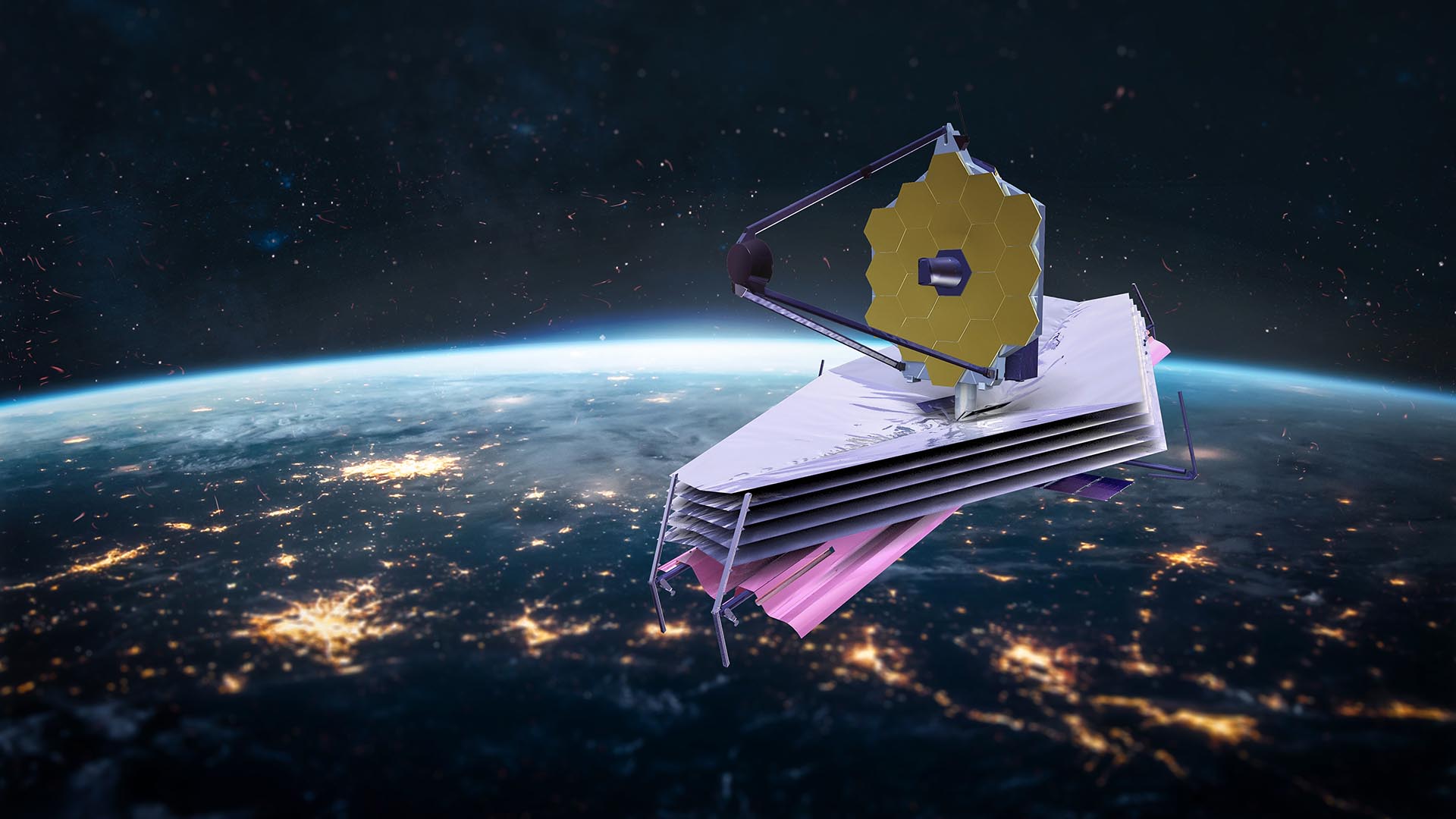
Finding themselves suddenly at the center of a national obsession has been a strange experience for the college’s astronomy students. “Everyone seems really excited about it,” Oikawa said. “Or at least, lots of people feel the need to tell me whenever they hear telescope-related news.”
RELATED: Denver After Dark: best stargazing spots
Denn thinks the surge in space-related interest will have a large effect on prospective students as they start to ponder their college choices over the next few years.
“The growth of space-related coverage is obviously going to have an impact,” Denn said. “After all, you can see a fresh rocket launch almost every week on the NASA Channel these days, so it’s not hard to see how that would generate more interest.”
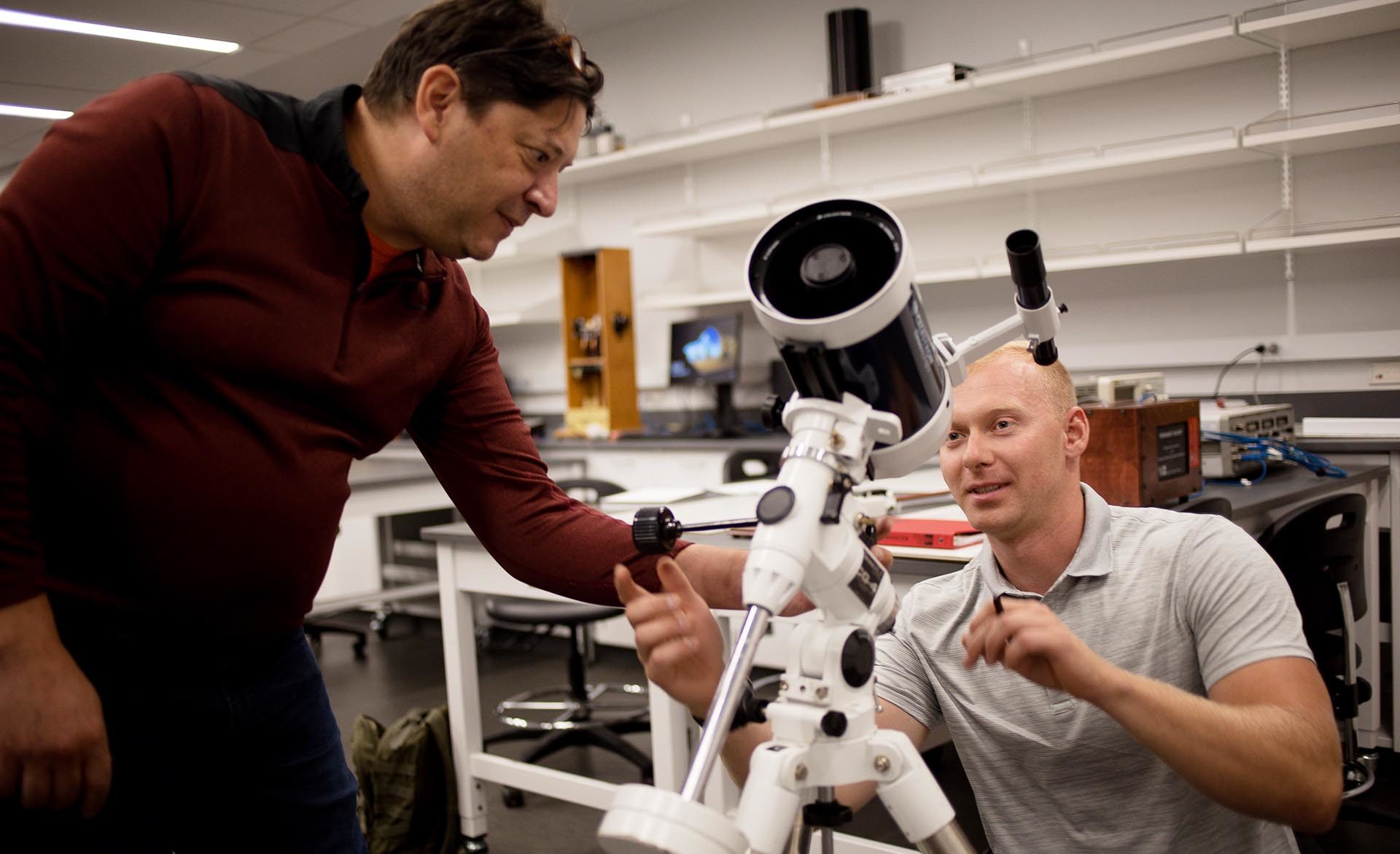
And for current students, there’s excitement about being involved in an increasingly popular field that’s filled with opportunities and possibilities.
Oikawa, for example, is optimistic that the Webb Telescope’s discoveries will lead to more funds going toward the kind of intangible, theoretical physics that she loves. And she’s also hopeful that astronomy’s growing profile will bring another positive change — even fuller classes.
“Half the motivation in pursuing physics is to meaningfully communicate with other like-minded folks about this stuff,” she explained. “So, the more the merrier.”

